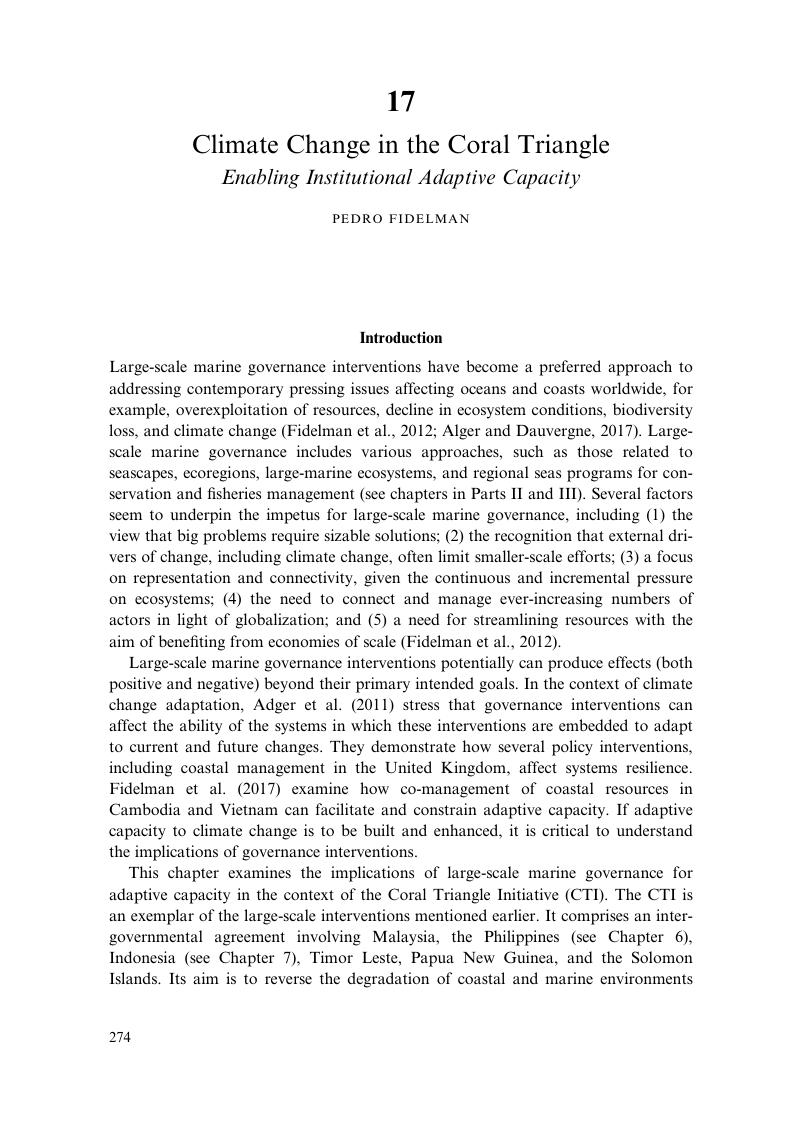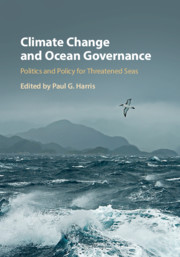Book contents
- Climate Change and Ocean Governance
- Climate Change and Ocean Governance
- Copyright page
- Contents
- Contributors
- Acknowledgments
- Part I Introduction
- Part II Vulnerable Islands and Coasts
- Part III Marine Fisheries and Pelagic Seas
- Part IV Changing Polar Seas
- Part V Institutions and Law for Ocean Governance
- 16 Contested Multilateralism
- 17 Climate Change in the Coral Triangle
- 18 Nonterritorial Exclusive Economic Zones
- 19 International Law and Marine Ecosystem Governance
- 20 Managing Marine Resources
- Part VI Policies for Ocean Governance
- Part VII Conclusion
- Index
- References
17 - Climate Change in the Coral Triangle
Enabling Institutional Adaptive Capacity
from Part V - Institutions and Law for Ocean Governance
Published online by Cambridge University Press: 12 February 2019
- Climate Change and Ocean Governance
- Climate Change and Ocean Governance
- Copyright page
- Contents
- Contributors
- Acknowledgments
- Part I Introduction
- Part II Vulnerable Islands and Coasts
- Part III Marine Fisheries and Pelagic Seas
- Part IV Changing Polar Seas
- Part V Institutions and Law for Ocean Governance
- 16 Contested Multilateralism
- 17 Climate Change in the Coral Triangle
- 18 Nonterritorial Exclusive Economic Zones
- 19 International Law and Marine Ecosystem Governance
- 20 Managing Marine Resources
- Part VI Policies for Ocean Governance
- Part VII Conclusion
- Index
- References
Summary

- Type
- Chapter
- Information
- Climate Change and Ocean GovernancePolitics and Policy for Threatened Seas, pp. 274 - 289Publisher: Cambridge University PressPrint publication year: 2019
References
- 4
- Cited by



